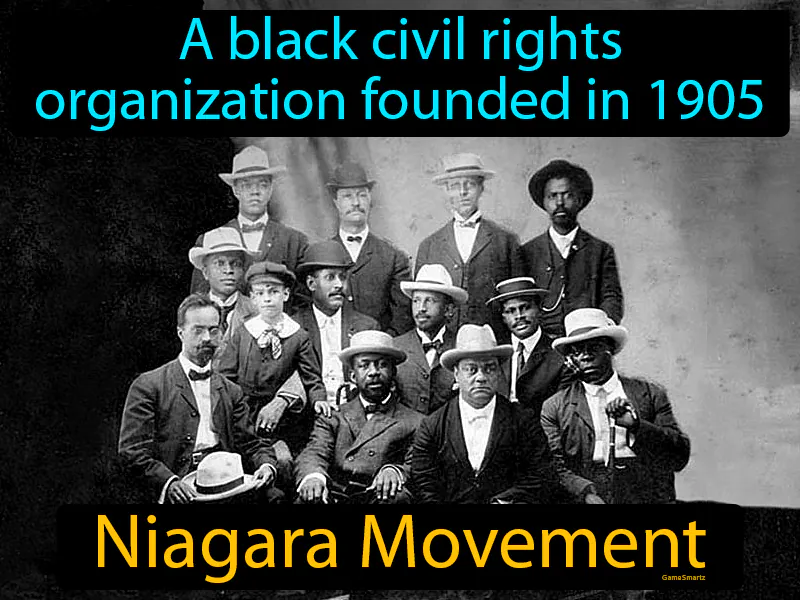Niagara Movement

The Niagara Movement, founded in 1905 by W.E.B. Du Bois and others, was an important civil rights organization that pushed for equal rights for African Americans during a time when racial discrimination was rampant. It emerged during the Gilded Age, a period marked by economic growth but also significant social inequality. The movement highlighted the tension between the promise of freedom and equality and the reality of segregation and discrimination, issues that still resonate today. Ideas from the Niagara Movement influenced future civil rights actions, such as the NAACP, and continue to impact discussions about racial equality and justice. In daily life, this legacy encourages people to advocate for equal treatment regardless of race, promoting inclusivity and fairness in schools, workplaces, and communities.
Practice Version

Niagara Movement: A black civil rights organization founded in 1905. Niagara Movement. The Niagara Movement was an early civil rights group that advocated for equal rights and aimed to challenge racial discrimination in the United States.